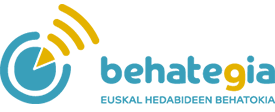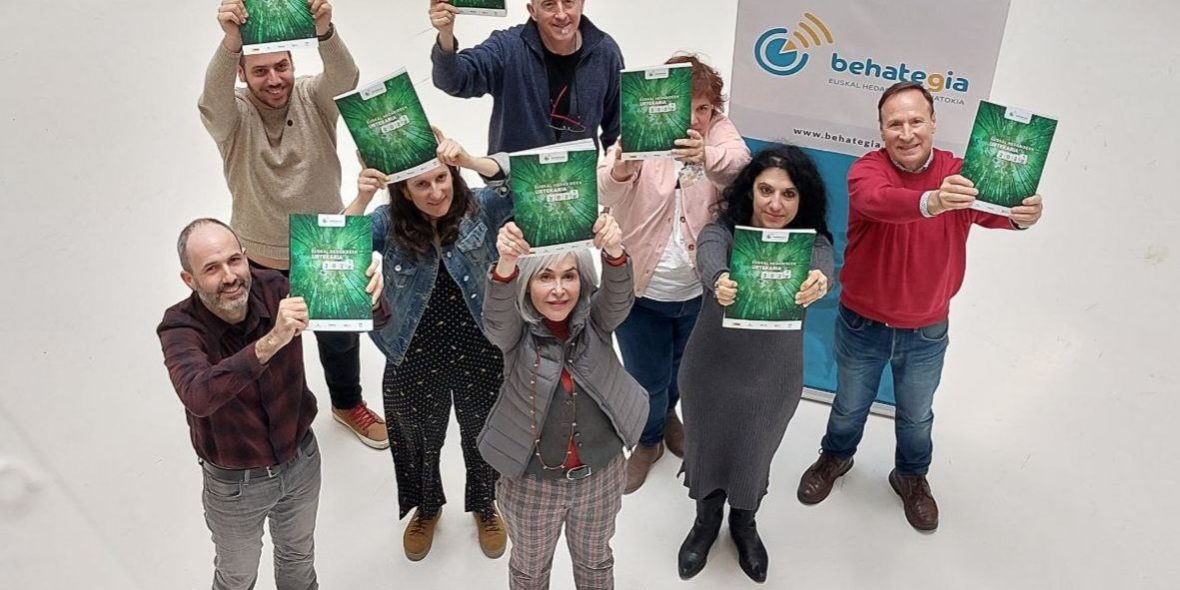The Observatory’s annual publication contains an analysis of what has happened in the year and the main challenges it faces in 2023. Among these is the need to take firm steps to take advantage of the development of digitisation and artificial intelligence in areas such as multilingualism, audiovisual, audience measurement or innovation.
It consists of fourteen articles and three annexes, with a total of thirty-seven signatories. The first two are a chronicle written by Libe Mimenza Castillo, coordinator of the Observatory, and Igor Astibia, director of the Hekimen Association. The first analyses international trends and the second reviews last year through the Basque media.
The Professor of Linguistics, Itziar Laka, has this year presented a sample of those who have been working on multilingualism for some time. The paper is called Euskara in the sea of electric fish and has very defined the direction to take decisions and take steps in this area.
There are five short items received from the mouth of people working in the sector (or very close to it) and that deal with the following topics: The collaboration between Goiena, Tokikom and EITB (and 22. a brief annex on the collaboration for the dissemination of Korrika; the newly created Badalab project; the measures to be taken in the face of Cyberattacks; the importance of sharing content on Wikipedia; and the creation of the new media EnpresaBidea.
Six are the works that make up the series of articles that are the result of long research:
Eneko Iriondo, Master in Multimedia Communication (UPV-EHU-EITB) has written Current audiovisual production in Basque. Analysis of production, consumption and dissemination focused on the qualitative perspective
The HEKA research group of the UPV/EHU, led by researcher Iñaki Zabaleta has written Online news in the small Europe: a balanced online agenda of minority languages, a study of a limited world.
Analysis of media audience networks, which analyzes The communities of the seven Twitter accounts related to the Observatory with most followers; carried out by the analysts Jordi Morales i Gras and Amaia Perez de Arriluzea Madariaga.
Article 2022 and the last 10 years of the Hekimen website, with the analysis of the websites of Hekimen, studied by Josu Azpillaga,of CodeSyntax, in collaboration with Libe Mimenza.
Finally, we directed the antenna to the podcast production and formed a block with two investigations and two annexes. On the one hand, a group of graduates of Mondragon Unibertsitatea, led by Eneko Bidegain, has worked on the situation of podcasts in Basque. On the other hand, the Audiovisual Media Research Group of Women of the UPV/EHU, led by Arantza Gutierrez-Paz, has analyzed Feminism in the podcast universe in The Basque Country. They are the annexes that make up the block, the LGTBIQ+ podcasts in Basque, this mythological animal from the hand of this last group, and a look at the consumption of podcasts signed by Edorta Arana, from the NOR Research Group of the UPV/EHU.
The Basque Media Yearbook is available on the network 2022-2023, in the direction behategia.eus As a novelty, we are working to issue articles in English via the automatic translator Elia (this post has been automatically translated).








